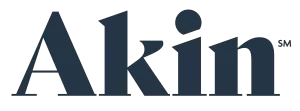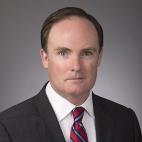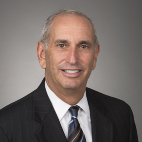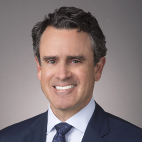Keep up to date with Akin Gump Strauss Hauer & Feld's COVID-19 Resource Centre
Federal prosecutors are investigating possible fraud by applicants to the Paycheck Protection Program (PPP), Bloomberg News and other outlets report.1 The program makes loans available to small businesses to cover certain operating costs during the COVID-19 pandemic.2 A Justice Department spokesman said that an initial analysis of data from the program has already turned up several red flags for possible fraud.3 And last week, the Justice Department announced it has brought charges against two individuals for making fraudulent statements to obtain loans under the program.4 Meanwhile, Hannibal Ware, Inspector General of the Small Business Administration, which administers the program, said the SBA has initiated “dozens of investigations involving complaints of fraud.”5
The program was enacted as part of the Coronavirus Aid, Relief and Economic Security (CARES) Act in response to concerns about job losses during the coronavirus pandemic. It includes two main components: an initial loan guaranteed by the federal government,6 and the possibility of loan forgiveness.7 In general, businesses with fewer than 500 employees8 can qualify for a loan of 2.5 times the company’s historical monthly payroll costs, up to $10 million.9 Borrowers must use the loan to cover certain operating expenses, such as payroll and other compensation costs (capped at $100,000 on an annualized basis per employee),10 health care costs, interest on mortgages and other debt, rent, and utilities.11 Borrowers are then eligible to have their loan forgiven to the extent they have used at least 75 percent of the loan to cover payroll costs.12 Both phases of the program also require applicants to certify that they are eligible for the program.13
All of this, of course, creates the potential for loan applicants to commit fraud. At the initial loan stage, applicants could misrepresent their eligibility for a loan by overstating their payroll costs or number of employees, or by requesting a loan for a fictitious business. In the matter DOJ announced last week, for example, the defendants allegedly applied for loans for businesses that were not in operation either before or after the COVID-19 pandemic and cited payroll costs for employees who were not actually employed by the applicants.14 Similarly, in seeking loan forgiveness, companies could claim to have used the funds to pay for covered expenses, when in fact the funds were used for other purposes.15 Or a borrower could conceal a reduction in its workforce or salaries to avoid a reduction in the amount of the loan that is eligible for forgiveness.16
Federal law provides numerous mechanisms, both civil and criminal, to punish applicants who commit fraud in connection with the PPP. In the criminal context, knowingly making a false statement to the SBA or to an FDIC-insured institution in a loan application (or a request to modify a loan) can violate federal false statement laws. See, e.g., 18 U.S.C. § 1014; 15 U.S.C. § 645(a). Obtaining money from a financial institution by means of a false or fraudulent pretense, or otherwise defrauding a financial institution, could violate the federal bank fraud statute. 18 U.S.C. § 1344. And using the mail or interstate electronic communications to obtain a loan by means of false or fraudulent pretenses could violate the federal mail and wire fraud statutes. 18 U.S.C. §§ 1341, 1343.17
Prosecutors also could pursue civil actions against alleged fraudsters.18 The False Claims Act allows the government to recover damages from any person who presents a false claim for payment by the government, or who makes a false statement in order to avoid or decrease an obligation to the government. 31 U.S.C. §§ 3729(a)(1)(A)–(B), (G).19 Since the federal government guarantees and forgives the program’s loans, a prosecutor could argue that false statements in connection with a loan violate the False Claims Act. The civil penalty for violating the Act can be substantial. In addition to per violation fines, the government can recover three times the government’s damages. 31 U.S.C. § 3729(a)(1). For example, if a company fraudulently obtained forgiveness of a $1 million CARES Act loan, the government could argue for a penalty of $3 million. And unlike other mechanisms, the False Claims Act also allows private citizens to bring suit over violations of the Act. 31 U.S.C. § 3730(b). Prosecutors could also utilize the Financial Institution Reform, Recovery and Enforcement Act. FIRREA allows prosecutors to impose civil penalties for a series of predicate offenses including bank fraud, false statements, and mail or wire fraud affecting a financial institution. 12 U.S.C. § 1833a(c). FIRREA imposes civil penalties ranging from $1.1 million to $5.5 million per violation, or in the amount of the violator’s gain, or the victim’s loss. 12 U.S.C. § 1833a(b); 28 C.F.R. §§ 85.3(a)(6), (7). FIRREA allows prosecutors to issue administrative subpoenas without having to use a grand jury and has the advantage of a lower burden of proof than that required in criminal cases. 12 U.S.C. §§ 1833a(f), (g).
The federal government may approach fraud in the Payroll Protection Program in the same way it approached fraud in the wake of the Troubled Asset Relief Program (TARP), which provided billions of dollars to banks and financial institutions during the financial crisis of 2008 and 2009. For TARP, Congress created a special inspector general to investigate fraud, waste, and abuse related to TARP funds. 12 U.S.C. § 5231. The inspector general worked with federal prosecutors to convict 384 individuals for TARP-related fraud, sending 302 individuals (including 77 bankers) to prison and recovering over $11 billion for the federal government.20 Similarly, the CARES Act created the Pandemic Response Advisory Committee.21 Among other things, the Committee is expected to coordinate efforts of existing inspectors general to prevent fraud in the CARES Act’s various measures, including the PPP.22 It also created a Special Inspector General for Pandemic Recovery to investigate the programs administered by Treasury under the CARES Act, including the PPP.23 In addition, the SBA has already announced that following the receipt of a loan forgiveness application, SBA automatically will review any loan with an original principal amount greater than $2 million.24
Read Bloomberg’s coverage here, and the DOJ’s criminal complaint alleging fraud in connection with the program here.
1 Tom Schoenberg and Christian Berthelsen, Justice Department Sees Early Fraud Signs in SBA Loan Flurry, Bloomberg, Apr. 30, 2020, Link; Chris Matthews, Small-business owners could face jail time as DOJ launches investigation into coronavirus loan program, MarketWatch, May 2, 2020, Link; Zachary Warmbrodt, SBA watchdog probes small business loans as scrutiny intensifies, Politico, May 1, 2020, Link.
2 CARES Act Pub. L. 116-136 §§ 1102, 1106 (116th Cong. 2020).
3 See Schoenberg, supra.
4 Press Release, U.S. Department of Justice, Two Charged in Rhode Island with Stimulus Fraud (May 5, 2020). Link.
5 Warmbrodt, supra.
6 15 U.S.C. § 636(a)(36).
7 CARES Act § 1106.
8 15 U.S.C. § 636(a)(36)(D)(i)(I).
9 Id. at § 636(a)(36)(E).
10 Id. at § 636(a)(36)(A)(viii)(II)(aa).
11 Id. at § 636(a)(36)(F)(i).
12 CARES Act § 1106(b); Paycheck Protection Program Information Sheet at 1, 3. Link.
13 15 U.S.C. § 636(a)(36)(G); CARES Act § 1106(e)(3).
14 DOJ Press Release, supra.
15 CARES Act § 1106(b)
16 Id. at §§ 1106(d)(2), (3).
17 The mail and wire fraud statutes also provide enhanced fines and prison time for frauds that affect a financial institution. 18 U.S.C. §§ 1341, 1343.
18 The CARES Act provides that SBA has recourse against a borrower only to the extent the borrower used the loan for a purpose other than those listed in the Act. 15 U.S.C. § 636(a)(36)(F)(v).
19 False Claims Act violations can also give rise to criminal liability. 18 U.S.C. § 287.
20 SIGTARP Semiannual Report to Congress, October 1, 2019–March 31, 2020 at 2. Link.
21 CARES Act Division B (Appropriations), Title V, § 15010(b).
22 Id. at § 15010(d)(1)(A)
23 Id. at § 4018(c)(1).
24 Small Business Administration, Paycheck Protection Program Frequently Asked Questions, May 13, 2020, Nos. 39, 46. Link.



















